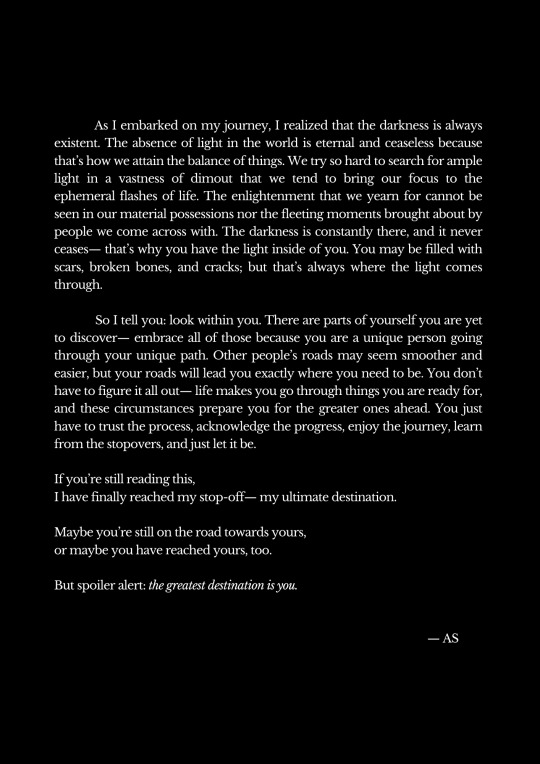a blog made by Arem Sison to showcase her metanoia and the ceaseless ephemeral flashes of life en route to the ultimate destination
Don't wanna be here? Send us removal request.
Photo




Have we met? ☻
0 notes
Photo


Where do I belong?
This part of the blog talks about my self-reflection regarding the Eastern and Western Perspective of the Self.
1. Who is the influential person in your life that inspired you to take up the course you have now? Explain his or her eastern or western characteristics and how close these characteristics are to you. This influential person must be an actual person, not a fictional character.
I’ve always watched my mom work inside the hospital. I’m amazed whenever she rushes to a patient being pushed through the emergency room, I’m fascinated when she makes sure the sutures look neat and at place, it interests me whenever she explains the prognosis of a client to their family, and it’s heartwarming when a patient grabs her hand or hugs her as they express their gratitude for my mom’s dedication in taking care of them. Her solicitude towards other people have always inspired me to do the same, because I don’t think nothing can be greater than being able to save people’s lives. My mom’s steadfastness at doing her duty along with providing empathy inspired me to become someone’s who’s better – someone who people can rely on and someone who’s able to give other people’s lives another extension. My mom gives of eastern characteristics, particularly collectivism, because she always likes everyone to feel like they belong. She hates it when other people gets left behind, or when we get to experience something great and some of our relatives don’t. She has a soft heart for the people around her, and she does her best to ensure that she can help people in any way possible.
I think I got my empathetic personality from her. As I grow up, I noticed how I can’t help but see the goodness in other people. I always try to put myself in other people’s shoes and wonder ‘what if that’s happening to me?’ Also, I noticed how my friends always come to me for advice, I can easily sense when a person is lying, I notice the slightest changes with the way people treat me, I immensely feel other people’s pain and emotions, and I always tend to give more than I should. Though some people may consider a few of these characteristics self-sabotaging, I have learned that it’s never one’s fault to be kind. Because of this, I often find myself wanting to take care of other people and ensure that they can enjoy more of life— hence, I took up this course. It’s not only the adrenaline when they rush someone into the emergency room. It’s not just the rollercoaster of emotions when the healthcare team collaborates together to save a person, and it’s not just the priceless feeling when patients cry their hearts out as they thank the medical professionals for saving their loved ones. It’s feeling fulfilled that once in my life, I was able to save someone like me. It’s not just about making them feel and realize that they’re not alone; it’s being one with the society, offering my all, and serving the people.
2. Because of Western colonialism experienced by the Philippines for several decades, much of our practices and even our identities as Filipinos reflect some western ideals. Thus, the Philippine Culture is now a mixture of Eastern and Western culture. Looking into yourself, which of the two cultures mentioned is most dominant in your identity? Or are you also a mixture of two cultures? Use the discussion concepts as a basis for your explanation.
I can say that I used to embody the Eastern philosophy, but as I grow up, I gave myself a chance to focus towards myself, embodying the Western philosophy. When I was a kid, I used to be the ‘friend’ who was always uninvited. The friend they leave inside the classroom during lunch breaks, the friend they do not include in the group chats, the only friend who doesn’t have any idea what’s going on because I was the only one who wasn’t informed. I was that friend— and because of that, I became a people-pleaser. I focused on having a harmonious social life by constantly engaging with people to make myself feel like I belong and to make them aware of my presence. I went to extremes— buying them gifts, treating them out, and making myself available 24/7 in case they needed me— all because I wanted my social circle to expand. It was a self-destructive behavior because I know that deep inside, I’m wasting so much of my social energy for people who doesn’t want me to be there. I became selfless, just like what Taoism states to be a characteristic of an ideal self— the only difference is that I lost balance. It became excessive that I forgot about myself and solely focused on how I can please other people.
Growing up, I learned a lot – fair enough to say that now, I focus on myself more. I have shifted my focus onto how things make me feel instead of how people see it. I know that the Filipino people always cared about their image in the society; I’ve probably heard my parents say ‘ano na lang sasabihin ng iba?’ for most parts of my life, but I have let go of that mindset. I realized that I am not responsible for how they feel about me and it’s also not my obligation to live up to their idea of me. I also do not owe anyone anything and I will certainly not suppress myself and my capabilities just so I won’t make other people inferior. I’ve also become straightforward and frank, but I do ensure that I communicate in a professional, non-judgmental manner. I may be a mixture of two cultures now, but I think no encounter in my life can change the fact that I have a soft heart for people and I’ll always be an empath.
3. How can you promote cultural empathy through your course and future profession?
As a future nurse, it’s always important to take diversity into consideration. We are being taught to respect other people’s values, beliefs, and traditions; and that we should always try to adapt ourselves to other cultures, especially when we decide to work overseas. I believe that all nurses have empathy in their hearts, because if they do not, they won’t be taking this course in the first place. Nursing is all about caring for other people and ensuring their safety and health – and I am well aware that dealing with different cultures is inevitable in this journey. The best thing I can do is to research, understand, respect, and remain non-judgmental about other cultures. It is best to see them as people, just like us, and not individuals who are either below or above us just because of the cultural difference. Showing kindness not just to our fellow countrymen but everyone across the globe is the most decent thing we can do to promote cultural empathy, because what we give to others will always come back greater at us.
0 notes
Photo
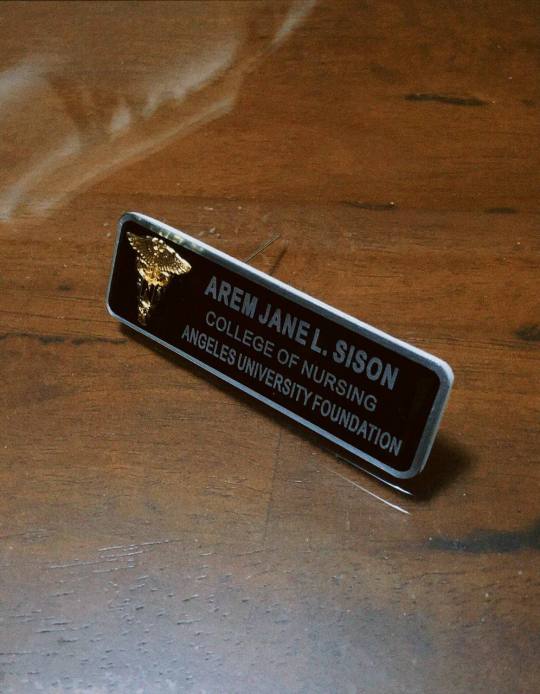
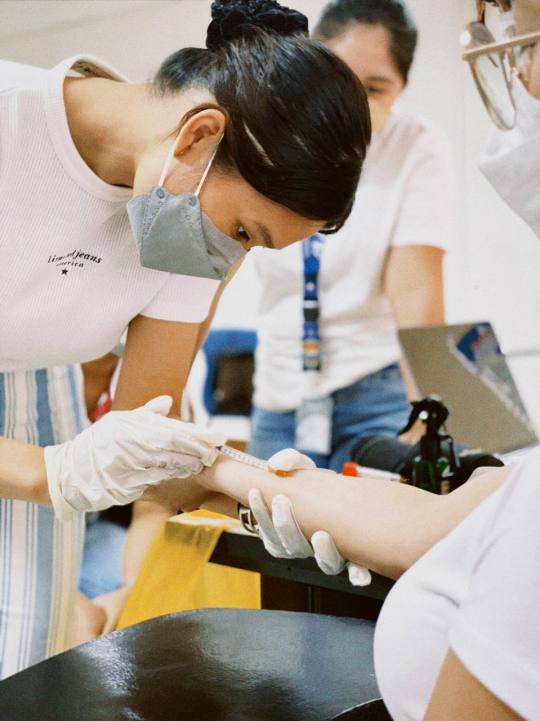
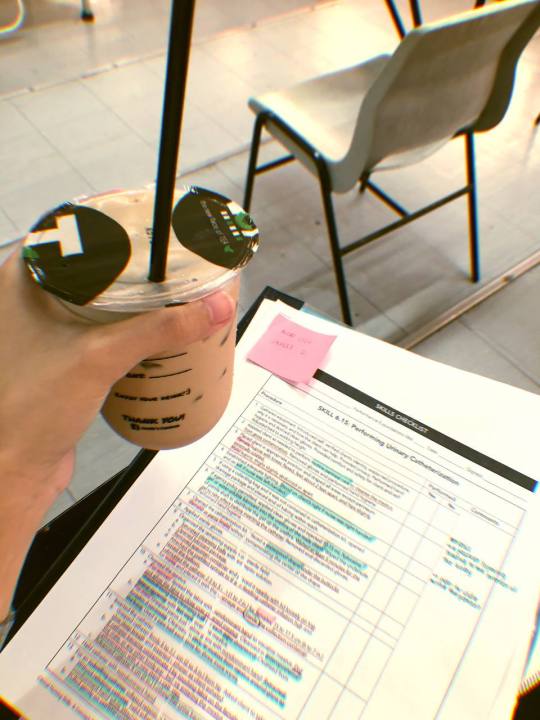
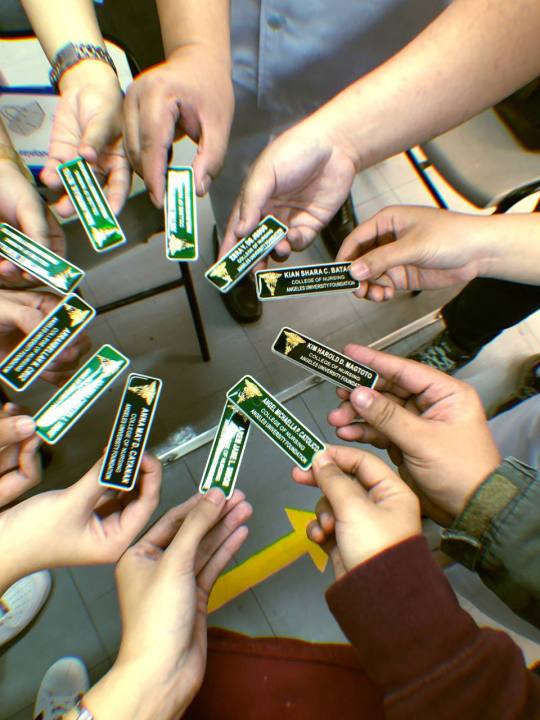
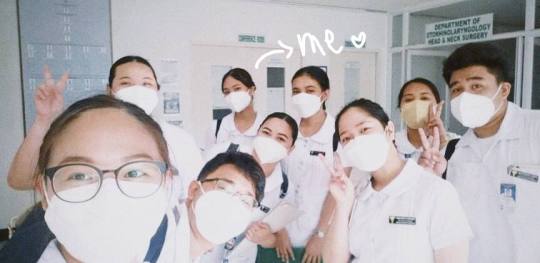

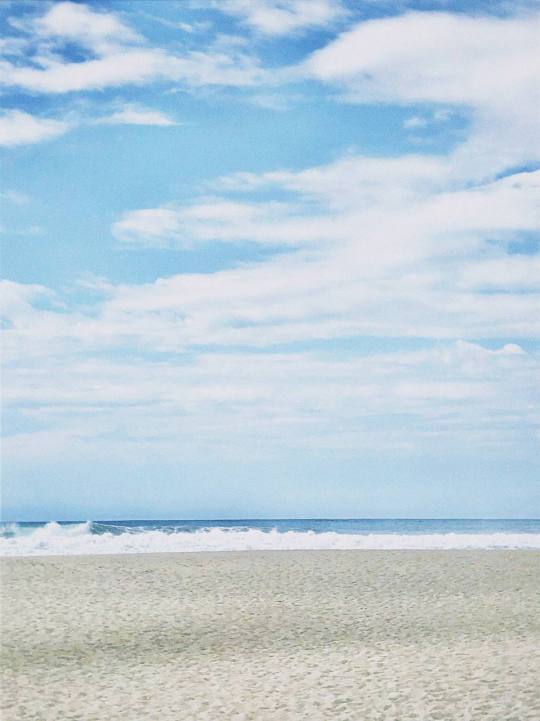
How far have I made it?
This part of the blog talks about my self-reflection regarding my philosophical and psychological self.
1. From the discussion, who are the Philosophers or psychologists who you think will influence and/or will not influence your life? Expound.
I think every Philosopher and psychologist have their own influence in people. They hold such power to make us think critically and they help us become rational creatures. They all have a disparate impact in my life, but when it was mentioned that Socrates’ life-long mission is ‘to know oneself,’ I immediately felt something strike me. It’s very apodictic that one never stops seeking to know oneself. Just like Understanding the Self, it’s vehement in us to always seek for our authentic self as we live our daily lives. With all the external factors such as society, friends, and family that may influence us to alter who we are, it’s fascinating how we constantly find ourselves aware that this isn’t me at the end of the day. Of course, it’s inevitable that we adapt pieces of other people that we have once had an encounter with in our lifetime— but sometimes, it goes unnoticed that we try to embody these pieces from other people and they start to profusely pile up, to the point that we feel start to feel lost.
There was a time when I was scrolling through Pinterest and stumbled upon a quote that said stop trying to show up as your best self and start showing up as your authentic self— at first it didn’t make sense, but then I realized that maybe the goal is not to be the best but the actual endgame is to just be real. The holy grail is to get to know ourselves more by showing up as our true selves— that way, we get to show everyone our greatness despite being different from everyone else. That way, we get to show our uniqueness without the sole intention to impress other people. That way, we make a great impression to no one but ourselves— and that is one of the missions we have to fulfill in life. As my favourite quote from Lao Tzu goes: “Knowing others is wisdom, knowing yourself is enlightenment.” Once you know yourself, you become invincible.
One of the psychologists, particularly Carl Rogers, made a great impact too with how I correlate my life to his words. He thinks that self-concept and self-identity is not fixated in one time frame— meaning, all things change with time. Nothing is permanent; what comes eventually goes in time. It’s such a hard pill to swallow that the only indelible thing that we possess is none other than ourselves. All of the moments we had in life will remain as moments, and all the people we meet are either going to teach us a lesson or serve as a blessing. Nonetheless, all these encounters will remain with the universe and we cannot take any of these when we die. On the other hand, change is the only constant thing in this world, and that is what Carl Rogers tells us— it’s such a hopeful statement that kind of reminds you that you won’t stay there forever. If you’re having a bad time, you’ll get through it. If you’re having a great time, treasure it because it won’t be that way all the time. He’s reminding us that change happens every day and we have the power to just focus on the things that we can control and let go of those we cannot. Our experiences in life hone us to become excellently capable of handling these changes, and we have to put trust in the universe and ourselves that these changes will lead us to better places, even if we have to go through rocky and steep roads.
2. What is your own philosophy in life? Does it reflect any of the philosophers discussed? Why or why not?
My philosophy in life has always been “forgive the past and hope for the future; but always, always live in the now.” The statement rationalizes most with Plato’s philosophy (or at least I think), which was emphasized in his magnum opus, “The Republic,” wherein he emphasizes that justice can only be attained by a human person if he/she lives with the three parts of the soul: (1) the rational soul, built by rationale and wit to rule an individual's affairs; (2) the spirited soul responsible for keeping one’s emotions at bay; and (3) the appetitive soul which is in charge for one’s basic humanistic desires. It seems confusing, I know— you may ask, how are these related?
The three parts of the soul play a significant role in being at the present moment. When cherish, treasure, and appreciate what’s in front of us, our mind works in storing the moment, living it, and being grateful for it— all at the same time. One example would be: recently, I went on a beach trip with my significant other and it was just the two of us. Shocker, my parents let me go without their company because they have developed massive trust in my lover. It was one o’clock midnight; we were drinking wine as we sat on the shore and talked about life. It was very spontaneous, so didn’t bring any mobile phone or camera with me. My sentimental self would like to go back at the hotel, get my digi-cam and start taking pictures of such a romantic moment; but my rational soul told me that grabbing something that would capture the moment will lessen the value of it when it becomes a memory— that there are some things and some times better kept in mind than in photos. It was very frustrating because I wanted to have a memento of the moment, but I also didn’t want to ruin the momentum. The spirited soul in me chose to just stay chill and enjoy the jiff without anything else in mind but to remember the whole scene. The appetitive soul in me, of course, told me to drink a bit more and live in the moment by chomping down all the delish food in front of us despite being on a strict diet for months. Plato said attaining these states justifies the human’s soul, and it does. It made me feel fulfilled and even though I had no remembrance whatsoever of that moment, it’s engraved in my mind and heart. I still smile up to this day whenever I randomly reminisce, and I thank myself for choosing to live in the moment. We human beings are composed of body and soul; the first one clinches the goals of the mind, and the result satisfies the latter. Plato’s philosophy helped me gain a better understanding and principle that one must carry out the desires of the soul in order to become just and noble to ourselves.
3. What are the fondest memories you had that shaped your desire to take up the course you are taking now?
Taking care of my grandfather before he went to a better place was one of the fondest memories that inspired me to take up this course. He was severely sick and I didn’t get the chance to stay with him for a lengthy period of time because he resided in Canada most of his life. When he was extremely sick, his wish was to go back here in the Philippines and spend time with the whole family. It was my examination week in Senior High School then, and I was also in a toxic relationship. To sum it up, I wasn’t exactly in a good shape to take care of anyone during that time because I can’t even take care of myself. It was tough— but I had to push myself to manage my time and feelings because I wanted to be there for my lolo. He said one of his life-long wishes was to see me graduate as a nurse, and his face lit up every time he talked about how good I’d look in that white nursing uniform. When I had the time, I took care of him even if it meant sleepless nights for me. He would always say, “dapat ganito mo rin aalagaan mga pasyente mo ‘pag nurse ka na.” (This is how you should treat your patients too once you become a nurse) and I would just smile back at him, because it was really painful to see him in that state, suffering but still fighting to live every second possible. I just smile back at him, but it pains me because I know that it’s a loss I can never afford to accept. When he died, I wasn’t by his side. My abusive ex-boyfriend and I had a fight during that time and I can’t go home because he tends to become violent. By the time that I had escaped from him, I received a call from my sister that my lolo is gone. When I got home, all of them told me that before he died, he kept looking for ‘his favorite apo.’ He wanted to see me before he bid goodbye, but I wasn’t there— and that’s still my greatest regret up to now.
Of course, I kept my promise to him— that I’ll take care of my future patients as I did him. My lolo is my inspiration; I haven’t seen a person greater, kinder, and wiser than him. He played a huge part on my growth as a person and he was one of those who honed me to become who I am today. I will never make it this far without him, and I know that he’s glad as I write all of these down. I’ve always wanted to become a nurse, but that encounter with my grandfather made me realize that taking care of other people really is my passion. It’s something that I inevitably do, and no matter how much I try to refute my thoughts, it always comes down to the thought of me making my hospital rounds and saving other people’s lives. Nothing excites me more than wearing that white coat and nursing cap, holding a patient’s chart, and telling myself that it’s a good day to save lives.
*attached pictures are connected to the answers.
0 notes
Photo
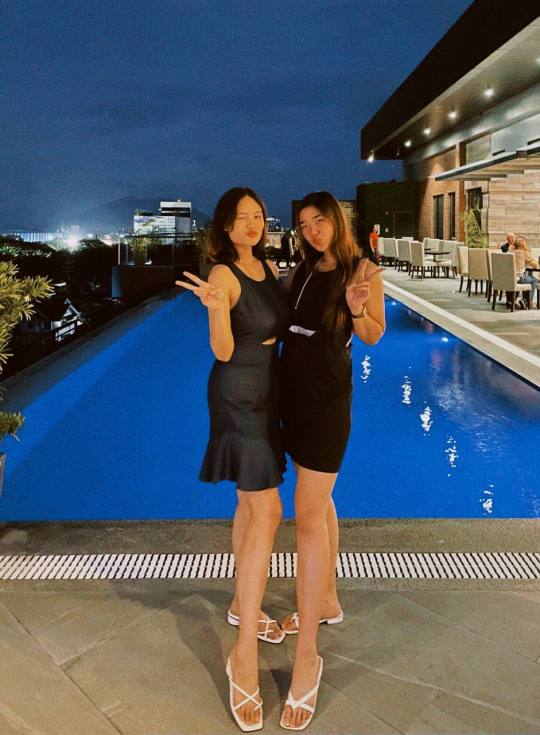
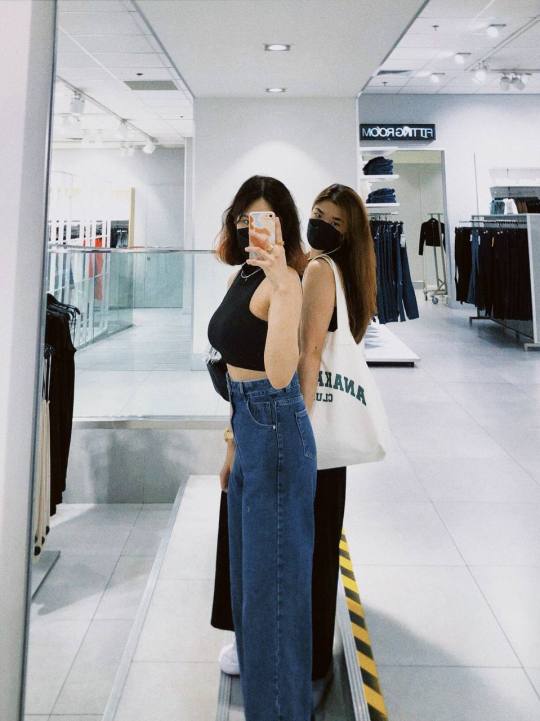
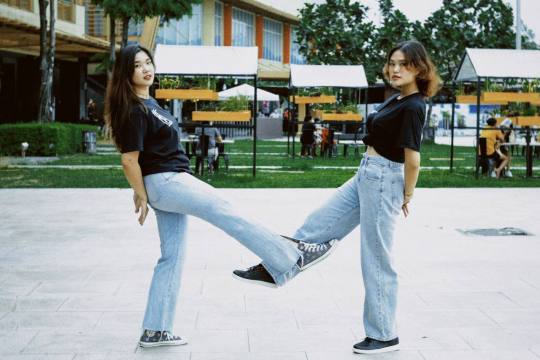
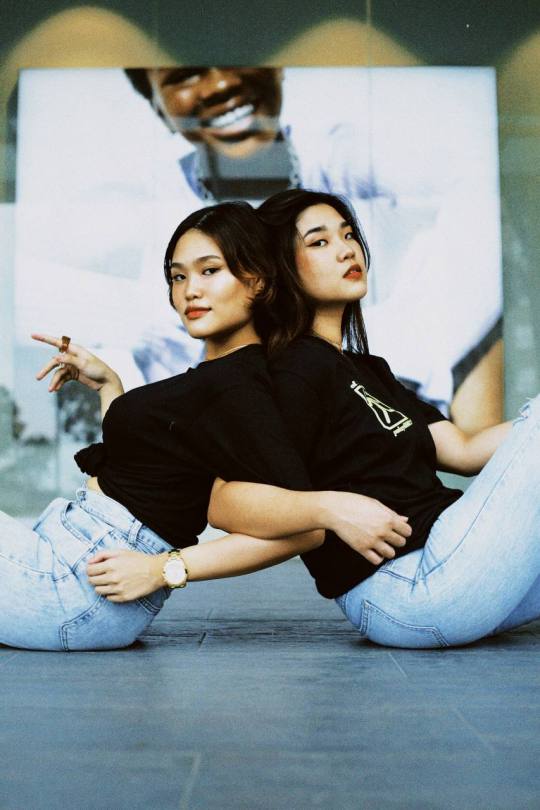
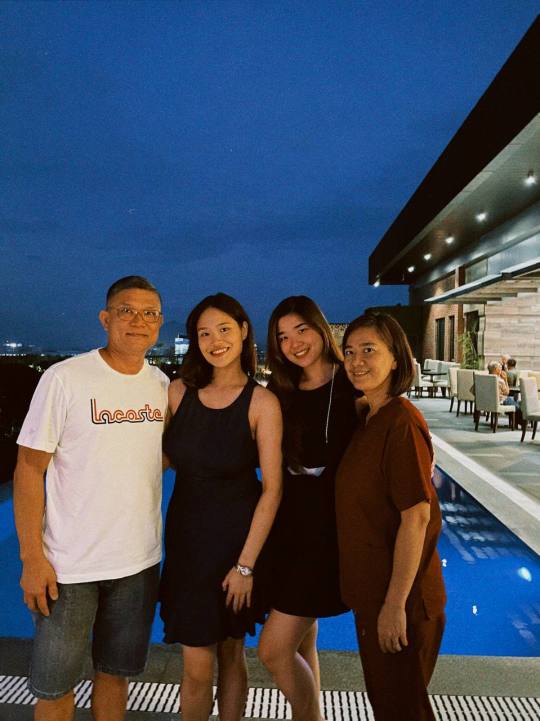
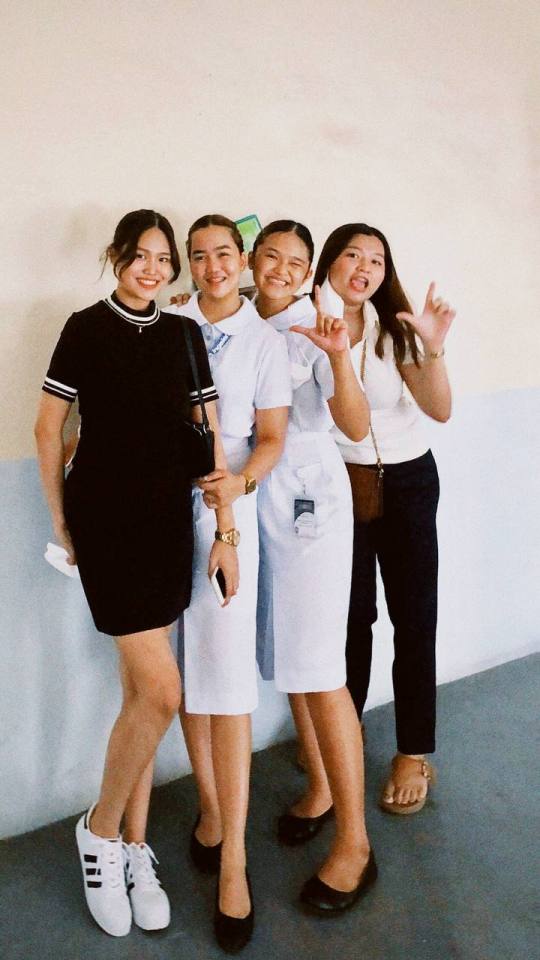
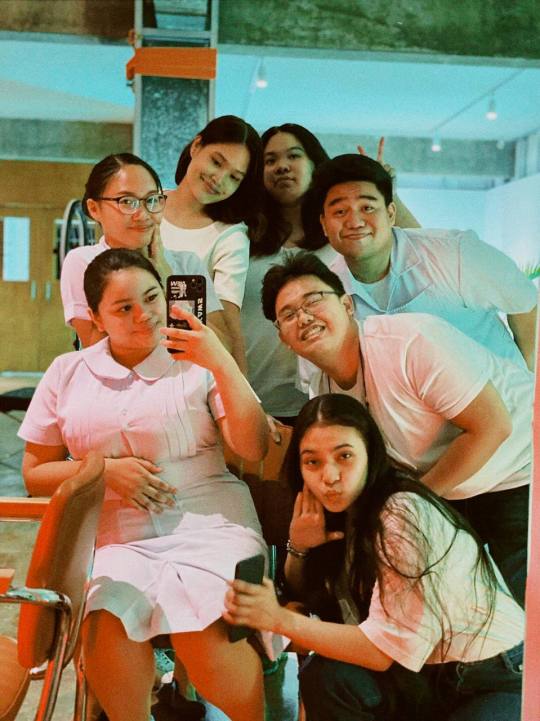
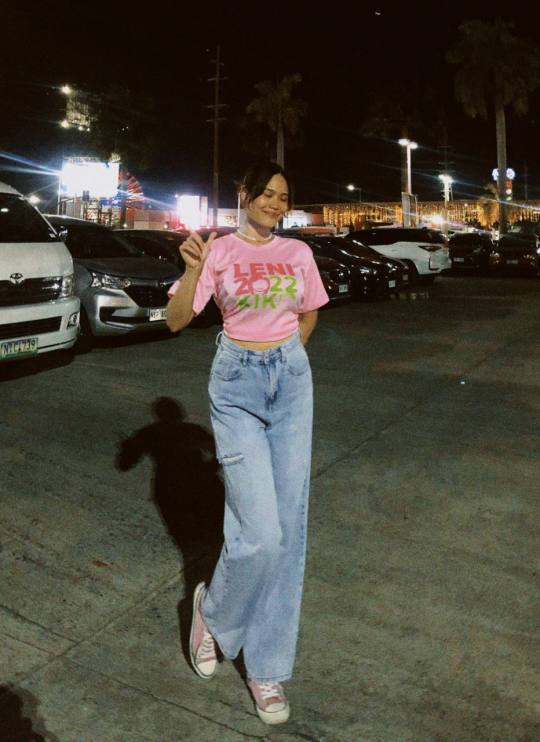

But who am I, really?
This part of the blog talks about my self-reflection regarding my anthropological and sociological self.
1. Who are the people playing influential and significant roles in your life? And how did they become influential or significant in your life?
I’ve always been asked who’s my favourite person in life— mostly for the sole purpose of finding out if I’m already seeing someone (romantically) or not— and I always respond with the same exact answer over the years: my sister. My sister, Aimee, stood up as both my mom and dad as I grew up. No, our parents aren’t on a better place yet; but they used to live abroad ever since I was 2 years old. Aimee and I have a four-year gap; which means that we didn’t really get along during our childhood and teenage years. As I mature with age, we had a closer, healthier relationship; and that’s how I figured out that she’s my favourite person. She was my mom when there are papers and consents I needed to have signed for school. She was at my elementary graduation, at my first volleyball game, and at my first photo shoot for a brand. She’s a witness when I first got drunk, when I went to my first party, broke a rule, escaped home, and ditched class for shopping. She was there during the happiest moments of my life— but it won’t be complete if she didn’t witness all the downfalls too. Aimee brought me ice cream when I first got my heart broken. She gave me advice but watched me not follow it numerous times, and she didn’t get mad; instead, she just let me live my life the way I want to (but of course, with limitations). She called me over the phone when she found out that my ex-boyfriend cheated on me— and again, and again. Aimee constantly asks me if I’m okay and takes me out on a coffee date when I’m not. She paid for most of my research projects during high school because our parents were strict with our allowances, and sometimes, it’s not enough to handle all the expenses for school. Aimee reminds me that she’s proud of me, that I am enough; and she keeps me grounded. She played a huge part on my personal well-being, and she honed me to become this person who seeks to see the light in everybody.
On the other hand, I also witnessed her highs and lows. I was there when she jumped from happiness as she graduated from college and I was there when her ex-boyfriend cheated on her multiple times. I was there when she hosted a huge party and I was there when she wasn’t invited to any of her friends’. I saw her make her way through championships during pageants and I saw her cry as her efforts go to waste by loss. She’s my best friend; my soul mate. All that I am at the present moment resembles who she is. She holds the greatest influence in me; but even so, she’s not always right. Despite our happy relationship, we ensure that we help each other grow into better individuals, even if it means lowering one’s pride for the other.
There are also other parties who play a huge role in my life such as my family, friends, and significant other. My family influences and constantly teaches me to become humble and kind, and to always stand up for what is right. I have a small circle of friends (because I pick who I become friends with), and all of them help and motivate me to become a better person and student each day. My lover loves me right, which makes me fall in love with myself in the process. All of these people help me flourish into the best and authentic version of myself as our relationships evolve. The laughter and tears, victories and losses, and results and struggles that we share altogether leads to a better, healthier relationship which makes all of our hearts filled with bliss.
2. How do you see yourself as a social being - who are you to family, friends, and others?
I am ironically both a shoulder to cry on and a jester in our family. I’m also a daughter who aspires to give nothing but the best to my parents, and a better life to my sister. I can say that I am the listener in the family— when everyone gets carried away with their emotions, I just sit, watch, and listen. Whenever things get too tough for my mom to handle, she would randomly open-up to me. Whenever my sister gets overwhelmed with all the responsibilities of a panganay, she would suddenly call me up and rant. Whenever I am in the car with my dad, he tells me about the things he cannot afford to tell the others. I get to carry the heavy weight of it all, and sometimes it gets too heavy; but I just listen, because I know how it feels to not be heard. I don’t see it as a negative thing, though — I understand that they have no one to let it out to besides me. Nonetheless, I still do my responsibility as a dutiful daughter who gives her all; and I make it certain that I’m here for them. After all, I wouldn’t be here if it wasn’t for them.
I can say that I am the same with my friends. I’m that one-call-away friend who’s always ready to listen; but also ready to make everyone laugh and uplift their spirits. My friends once described me as ‘the friend they can’t lose’ because I’m one of a kind (according to them), and that the chances of meeting someone like me in their lifetime only comes once in a while. The only difference I can think of is that, I am more of me when I am with my friends compared to when I am with my family. I’m more comfortable, more kalog, more protective, and more vulnerable. To be frank, I had no friends during high school because I was bullied back then (due to my appearance), so no one wanted to be involved with me. By the time I had a few friends, it felt like I was forcing my way into their lives. They constantly made me feel that they didn’t want me unless it’s convenient for them. When I lost weight in college, I met new friends. At first, I thought that maybe they’re just being nice to me because I have lost weight and I look better now than before— but I saw their genuineness as time passed by. They consider me and my thought in everything, they send an invite whenever they’d go out even if they know I’ll probably refuse because they live far from me; they always wait for me to go online before telling stories, and they always look for me when my presence cannot be found. For the first time in my life, I felt included, loved, and appreciated by my friends. They would always say: “Si Arem yung friend mo na maarte pero mabait. Strict yung parents, bawal lumabas, pero in times of emergency, nandyan agad.” Or sometimes they would say: “Si Arem yung masungit tignan pero hindi alam ng mga tao mabait talaga.” Sometimes, it feels like pambobola to me— maybe because I’m not used to receiving compliments— but they taught me to see the good, not just in other people but in myself too. I am truly grateful to have a set of friends that showers me with love and affection, and helps me become a better person.
Arem is a binder and a fighter in the society. As I write this essay, I am disheartened by the results of the 2022 election. The results are unofficial yet, but I can’t shake the fact that there’s a huge chance for the Marcos-Duterte tandem to win this through. I am sad, scared, and disappointed. I am sad because those who deserve to have the administrational seats rank low in the results. After so many years, we are finally given the best candidates fit for these positions, yet, they didn’t even make it to the top. I’m scared, because I fear that the history might repeat itself if the Marcos-Duterte tandem takes over the country. I am scared for my life, those of my countrymen, and the future of the Philippines. I am aware that they can easily manipulate their way through the top, and I know that they have the power to rule over the nation for the second time around. I am disappointed, because the Filipinos deserve better than this. We were given the chance to research and vote for a wise candidate, yet some of us chose popularity over credentials. I’ve always fought for what is right along the years; I was a former journalist at Angeles University Foundation Integrated School and now, I decided to take the fight to the streets. I am proud to say that I am one of those who stand and walk under the scorching heat as we shout for what is right and what we deserve. I am proud that I am one of those who are risking their lives out of love for the country and its people, regardless of what the ignorant few throw at us. I am proud to be one of those who stood up, spoke up, and consistently does so. Kailanman, hindi ko pagsisisihan na ako ay tumitindig at lumalaban para sa Pilipino at sa bayan.
This is me as a social being. I am a listener, a daughter, a friend, a student nurse, a fighter— but most of all, I am a Filipino; and I am composed of Filipino values that shape me into a decent, human being who deliberately cares for the country and its people.
3. As a future professional, how can you ensure further learning in your profession in connection to our society?
As a student nurse, I can say that our journey does not stop in getting that RN license; it starts there. It is our duty as healthcare professionals in the future to partake in our society by fostering quality care to our patients and ensuring their overall health and well-being. Learning isn’t limited to theories and books; we will further learn once we take that first step inside the hospital. The experiences that we will attain in providing service to our fellowmen in the future will certainly teach us not only things that are medically-related, but also lessons that we can apply in our lives. Nothing can compare to such joy when we successfully save people’s lives— may it be in the hospital, the streets, the house, or the community. As we go along the journey of being humane medical professionals, I am confident that most of the learning will be obtained through the process, the highs and lows at work, the practices and mistakes, and the wins and failures as we serve the people. Everything that happens inside the hospitals, clinics, rural areas, volunteer sites, or wherever our dedication may bring us will surely teach us something we can take with us forever. In order to have takeaways during our journey, it’s important to have an open mind and heart to everyone we meet, and we should give our best at every encounter to ensure that we are not only fulfilling our duty— we are also giving hope and saving lives.
*attached pictures are connected to the answers.
0 notes
Photo
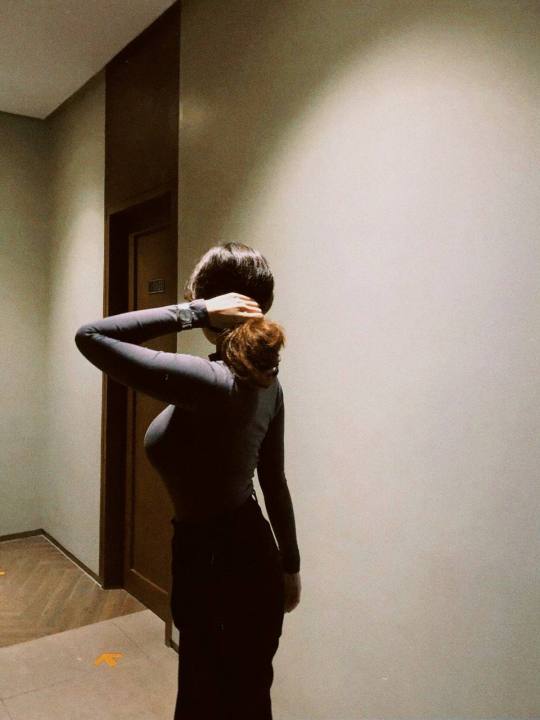
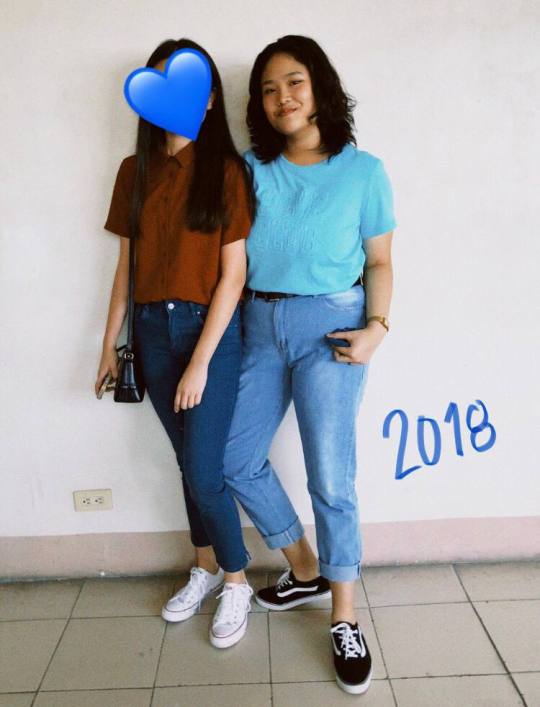
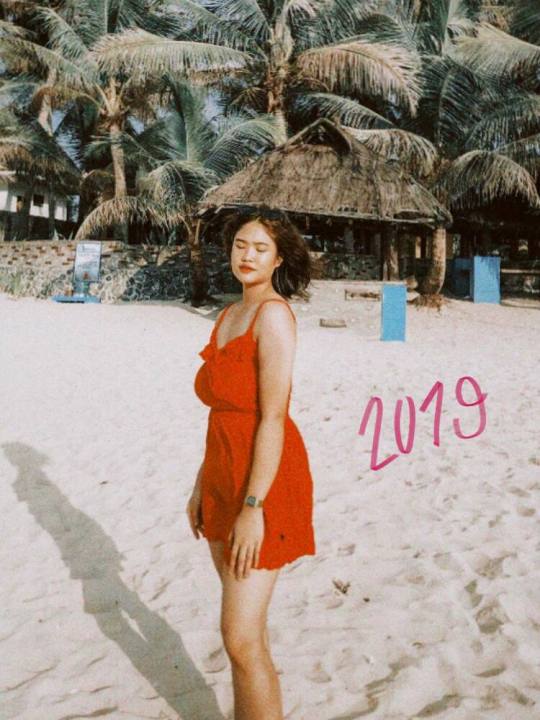
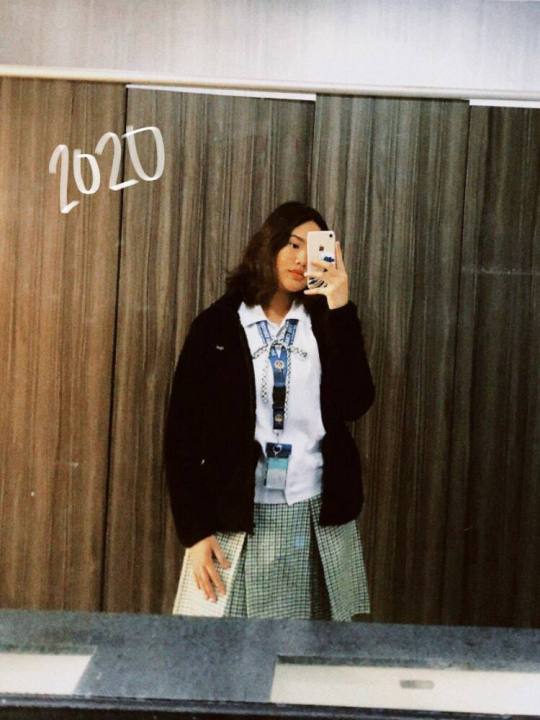
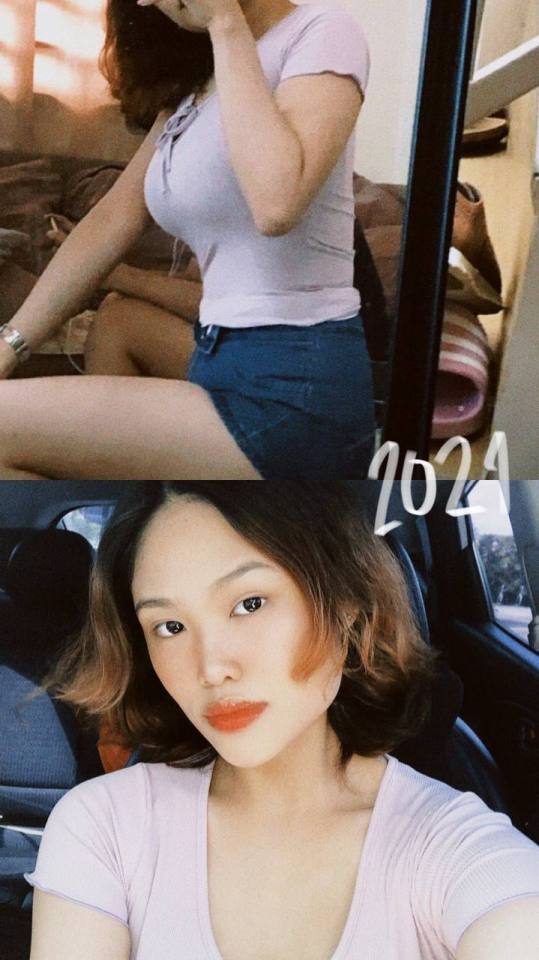
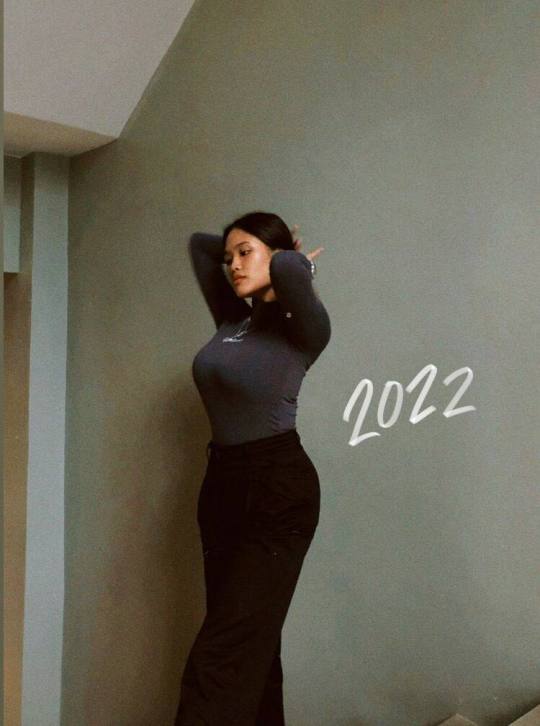
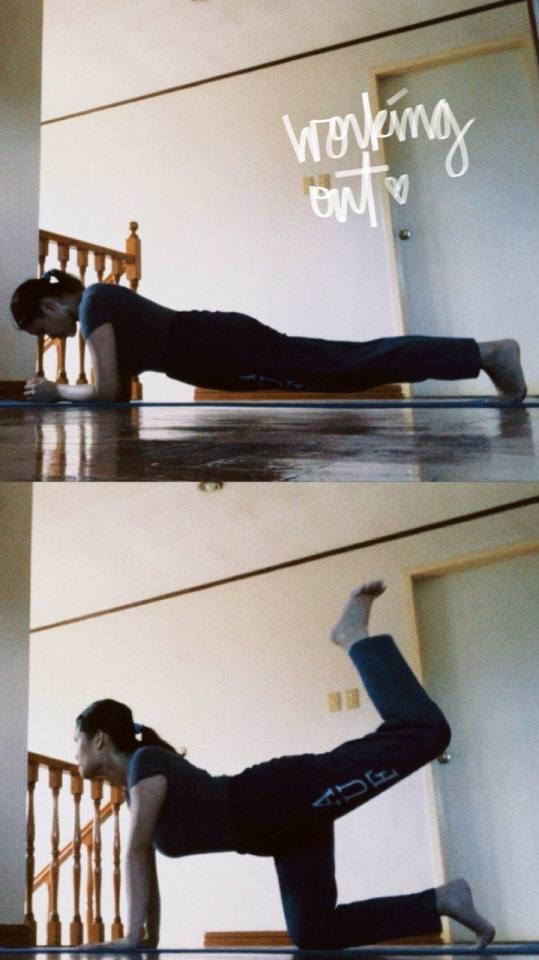
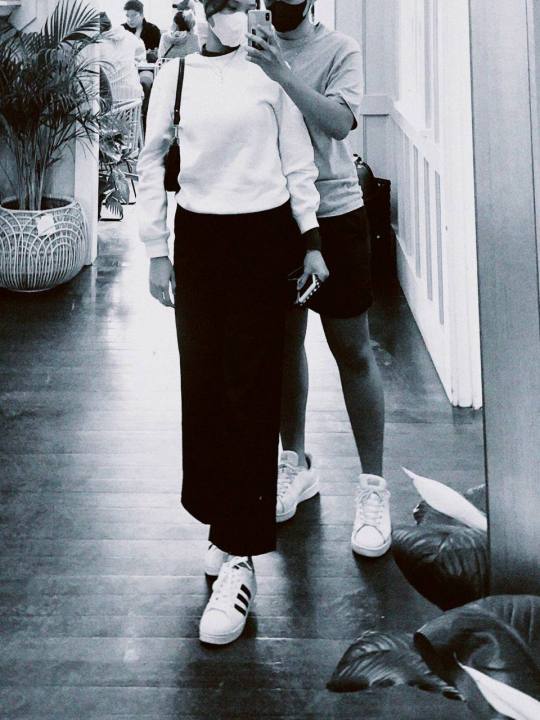
Where is home?
This part of the blog talks about my self-reflection regarding my physical and sexual self.
1. What are my stands on the following issues that bring horror to the world today: body shaming, gender violence, and discrimination?
I think most people have at least experienced body shaming, gender violence, and discrimination once in their life— and I think no one deserves all of it. I am extremely against body shaming not only because I know how the experience feels but because it’s not right at all. One person should never make remarks about another person’s body because first, it’s not your business; and second, they know. They know and you don’t have to tell it to their face because that’s just plain insensitive. It’s actually sad how Filipinos have always viewed giving opinion about one’s body is a form of a joke, such as when you attend a family reunion or a party, the first thing they notice about you is your body and they make insensitive remarks about it. Personally, I’ve always been the subject of family dinners and occasions because I used to be fat— and all of my relatives would say: “napabayaan yata s’ya sa kusina,” or “parang hindi pinapakain ah,” or they’d tell me “gusto mo maging ganyan ka kapangit ‘pag hindi ka nagpa-payat?” as they point out another stout person. Before entering 12th grade, I was brokenhearted and I was wallowing as I ate ice cream and other comfort food. People kept on telling me I was fat and ugly and it took a huge toll on me that I lost so much weight. During 12th grade, I had a good set of friends and our stress-reliever was eating outside— again, I gained weight. Even with years and years of explaining to my family and relatives that body shaming is wrong, they never seem to get ahold of it. When the pandemic started, I was around 82 kilograms. Again, people body shamed me and it took a huge toll on me. I decided to work out at home and I only ate once a day and the routines became unhealthy until I began collapsing during random times of the day and I was diagnosed with anorexia. Now that I have recovered and lost weight, people started telling me I’m too thin and that it makes me look very mature and that the body I have now doesn’t suit me well. When that happened, I snapped and decided not to care about what other people would say about me anymore. I realized that no matter what I do, they will always have something unsolicited to say.
One of my past lovers was a physical abuser, some of my old friends were sexual abusers, and I was one of their victims. The reason behind it? I’m a woman. There was one time when I confronted a friend, asked him why he had to do that to me. His reason was these exact words: “babae ka eh, hindi ka naman lalaban” followed by a laugh. Also this other old friend of mine who slapped me in the face and when I cried because of the pain, he said “ito naman, joke lang eh iyakin naman agad” and he had the audacity to never talk to me again (thank God for that). My fingers and toes aren’t enough if I’d count all the gender violence I’ve encountered and it makes me sick to my stomach that it’s seen as a normal thing in society. All the remarks of my old professors that I cannot ace my subjects because I’m a woman and a woman is not intelligent enough to get high grades, the endless teasing of men from the schools I’ve been to that I am not worthy of love because I’m ugly and no one could ever love me; the opinions given by my relatives that I can never achieve my dreams of being an independent woman because women are supposed to be housewives who does nothing but serve their husband and family— all of these are remembered but never retained. All of the words they threw at me used to bring me down, but as I grow up, I realized that the phrase is true: people throw rocks at things that shine. I am firm with the stand that I am against body shaming, gender violence, and discrimination simply because no one deserves it— may you be a man or a woman. As for me, I am a woman; and I am now brave enough to stand by myself and for myself. It’s not my responsibility to live other people’s expectations of me, and their opinions don’t define who I am. I am a woman, and that doesn’t make me any less.
BABAE AKO, HINDI BABAE LANG.
2. How can you show self-respect in terms of your body and what are your promises to take care of your body?
Ever since I’ve grown to love my body, I don’t really care about what other people say about it anymore. I post whatever I want, I show off the body I worked hard for, and I wear clothes I used to keep in my closet. Tattoos are fine with me (I really want to get a meaningful one after graduating school), but I can’t seem to love piercings yet. I’ve always wanted to have piercings more than those two on each ear, but I’ve always been so hesitant. Also, one thing that I can never to do my body is take a picture of it and send it to people. I have no judgment for those who can do this comfortably— but personally, I have this mindset that once it’s out on the internet, you really won’t have any control of it. Taking pictures of my body is fine (and I really do it to track my workout progress), but I don’t think I am nearly capable of sending it to other people. That’s my fine line between respect and confidence. As for my body-care, I engage in daily workouts, scheduled rests and resets, healthy lifestyle and diet, and a lot of meditation. I take care of my body because I do think that it is my home, and it is who responds to every situation in my life (e.g. when you’re tired, the body seems to be dysfunctional; when you’re stressed, the body seems to feel so heavy) that’s why I really allot time for my weekly resets. I also promised myself that I will never send any picture to anyone because I think that’s something I’ll regret for the rest of my life. Lastly, I promised myself that I will no longer let other people affect how I feel about my body and I will no longer engage in negative self-talk about my body. It’s beautiful, it’s mine, it’s something I have control of, and it’s something that I own— and how I feel about it should never be taken away from me by anyone else.
3. How can you promote gender equality and human dignity through your profession?
I think the most important thing when being a nurse is remaining non-judgmental and empathetic towards our clients. We can promote gender equality by providing equal treatment through attaining to their needs, providing emotional support, and encouraging verbalization of feelings regardless of age, gender, culture, and color. It’s important for us to treat our clients with equality in order to give them quality care that is tailored to meet their specific needs; and through this, I hope that we serve as role models who can influence them onto being kinder people towards their fellowmen. Furthermore, as a nurse, another crucial thing is valuing human lives and dignity. We can promote this by attending to our clients who have been victims of abuse and maltreatment, encouraging them to express their feelings, and reassuring them that none of what happened to them is their fault. It’s also important to reassure them that they are not alone, and advise them to report any kinds of assaults or abuse to legal authorities for legal actions. As nurses, we must value the life of every individual, regardless of who they are— and promise that we will continue caring for them without judgment, discrimination, and criticism. The world can always use a little more kindness to help people realize that it’s not that hard.
4. What is your sexuality? What is your sexual orientation and your Gender Identity?
I am a heterosexual female who is attracted to the opposite sex. Even so, I have friends who are homosexual and I am in full support of gender equality. Like other people, I also had a time in my life where I questioned who and what I really am. I almost identified myself as bisexual simply because I find my girl friends beautiful, and I was always sweet towards them; to the point that other people asked me if I like girls. It took me some time to contemplate things, but I realized that I cannot be romantically attracted to women. I love my friends, all of them are lovely, but I can’t visualize myself falling for them— or any other women. I constantly find myself falling in love with a man, and I love being loved by a man. I’m actually currently in a two-year relationship with a man and it makes me feel all sorts of things— things which I cannot really feel towards a woman. Even so, I think it’s normal to just explore life (especially during the teenage years) and get really confused about who we are because we’re so curious about trying things that we sometimes feel a lot of emotions altogether.
Still and all, time will come when we’ll figure things out and by that time, we’d have no regrets. We tried our best to know ourselves more and it may be a long, messy process but it’s worth it in the end. No matter what you are or what you want to be, just let you be. Change is the only constant in this world; and as long as it’s right and fills your heart with bliss, go for it. All is worth it in the end… the only thing you can give yourself is time. Whoever you are and whoever you desire to be— you’re valid, you’re valued, you’re loved, you’re seen, you’re worthy. ♥
*attached pictures are connected to the answers.
0 notes
Photo
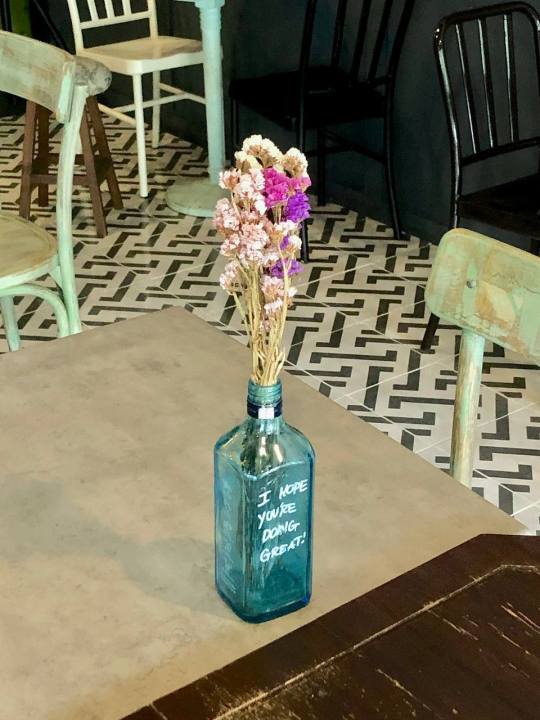
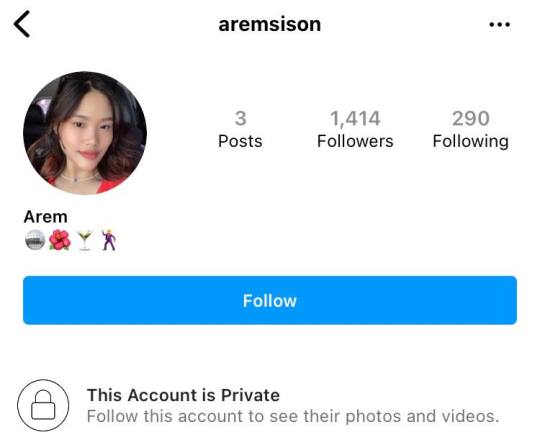
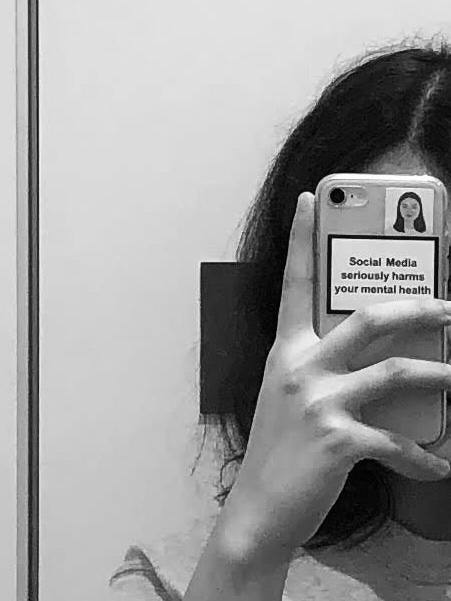
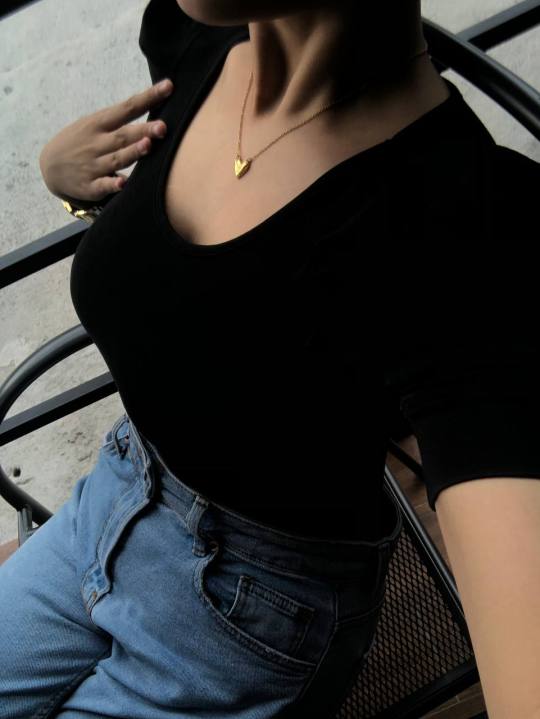
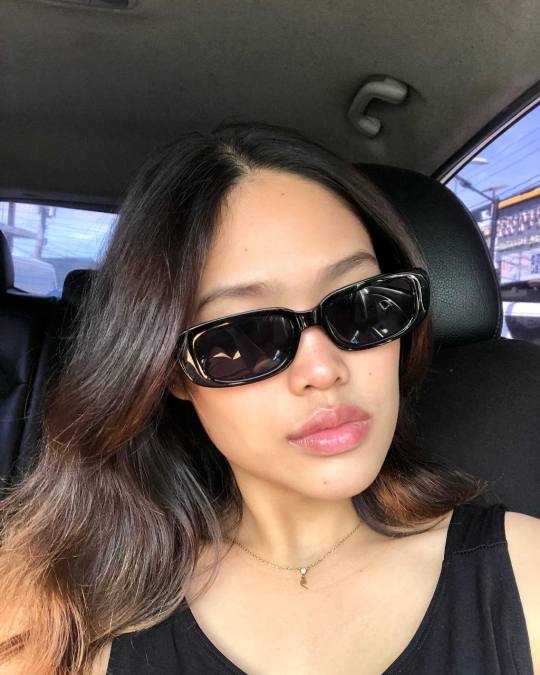
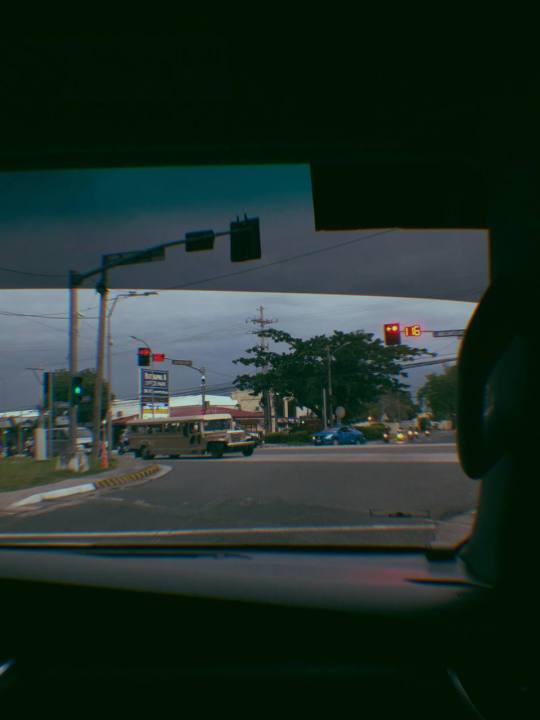

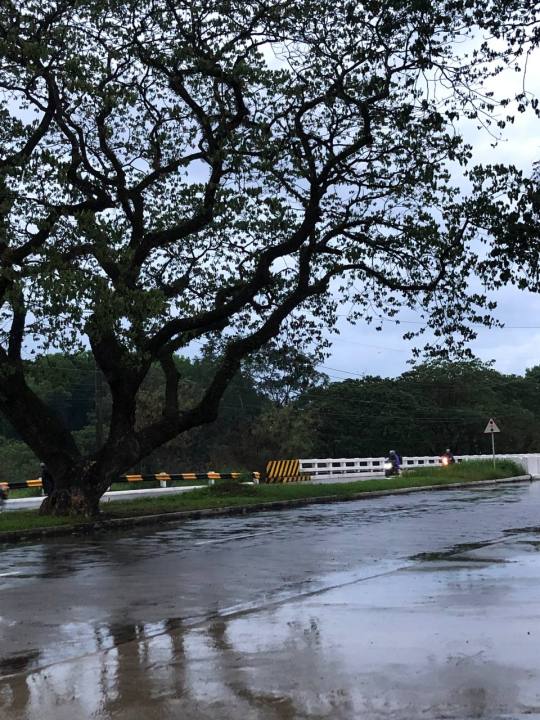
The destination looks different from here.
This part of the blog talks about my self-reflection regarding my material and digital self.
TW: anxiety, depression, self-harm
1. How do your material possessions (like your body, physical belongings, family, and home) define you and how do you cope with an experience of material loss?
My body used to be the most dreadful part of my being. I hated it every single time I look in the mirror— to the point that I had to remove any mirror inside my room. I used to be fat; and there was never a time when people didn’t remind me about it. Going outside is like a self-destructive thing to do because I knew that I’d go home and start questioning my worth. Sometimes, it even felt like home isn’t a safe space for me— because there were times wherein my own family degrades me for being fat; as if it’s such an extremely bad thing to be. My relatives would judge me, and it’s like there’s this automatic energy that the entire world hates me because I’m fat. Home started to feel more like of a house— just four walls I go to for my daily survival.
I was diagnosed with depression and anxiety at an early age of 9 years old. The quotes I see on the internet like “your body does not define you” and “their opinions don’t make up who you are” slowly started to become nonsensical to me. I thought, “but this isn’t reality,” and continued to pity myself for getting bullied and judged by everyone around me. I developed a sense of inferiority, became a people-pleaser, and let people take advantage of me just so I’d have friends and just to have a sense of fulfillment that I fit in this society and that I am liked by many.
As I grew up, there were a lot of things that happened so quickly that I can’t even reminisce and make up one clear memory from it. I just know that I got my heart broken; I got depressed and I was almost dysfunctional that I lost so much weight. I’m not going to lie, I loved it. I’ve always dreamed of getting hit by a car or acquiring illness just so I can be admitted in a hospital and from there I’d lose weight, or that maybe I’d lose too much blood from all the cuts and I’ll faint and the next thing I know I’ll be in a hospital losing weight — who would’ve thought a guy would be enough to change my physique. Losing weight became so addicting to the point that I got diagnosed with anorexia. I loved how people saw me getting thinner with time and it made me feel like I finally belong.
But like any other thing we do that isn’t for ourselves— it gradually fades. It’s always temporary when we do things for other people. During 12th grade, I gained weight again. Lost self-control and discipline, resorted to stress-eating and binge-drinking, and I had a sedentary lifestyle. However, I noticed how I am not as affected with people’s remarks of me as I used to be. Maybe it’s because I spend so much time scrolling through positivity quotes on Pinterest, or because I got used to all the criticisms I started to feel numb, or maybe because I just learned how to care less. As I continue to mature, I started to realize that I’m the only person who’s in control of my body and it’s only I who can get to decide whether it’s beautiful or not. When the pandemic started, I started being self-conscious too. I modified my lifestyle, eating habits; and engaged physical activities. At first, it felt like I was about to die— but it became a healthy habit and my body craved for it. Now, I can say that I feel good, and I am happy. I don’t have the perfect body, but I’m the only person who can make it that. I now realize that it’s true: my body doesn’t define me and other people’s opinions don’t make who I am. It’s not my responsibility to live up to their expectations of me.
My body, physical belongings, family, and home don’t define me. Sure, they take part of who I am right now— but I personally believe that I am not one with them. There’s an aspect of me that joins these material possessions, but I am not wholly them. These are precipitating factors; modifiable; the surface— and there’s so much more in me beneath that surface. Losing one of these (especially family) would bring a huge impact on me, but I do believe that endings are just doors for better beginnings. Of course, I’d still get heartbroken and wallow, especially if the one I lost holds a great part of me— but these no longer define me. I define me. My growth defines me— and growth never stops. The only things that can define me are time; and change, and willingness, and my mind. Learning the things that I can and cannot control is the most powerful lesson I hold. If it gets overwhelming: I pause, I feel, and I continue. If I’m happy: I pause, I cherish, I remember, and I continue. It’s always important to live in the now.
2. Who are you in social media and do your social media accounts exactly represent who you are? Explain.
During the days, social media used to be a competition: who’s the hottest? Who’s the most popular? Who’s currently famous? Who has the latest issues? And of course, as teenagers, everyone loved to get acknowledged. I used to share a lot of posts on Facebook because I feel a sense of satisfaction when my shares get a lot of reacts. I used to tweet a lot in Twitter (which got too extreme that I share every feeling, every plan, every issue, almost everything) because I liked it when people replied and asked me what’s up. I used to exert so much effort in my Instagram pictures so I’d gain a lot of likes and hopefully that’ll gain me more followers. But because I was fat, I used to edit my pictures. I’d usually make myself look thinner, enhance my facial features, brighten up my skin, and remove any blemishes. I’d spend hours in curating the most perfect Lightroom filter so I’d have an aesthetically pleasing Instagram feed. I hopped on the trend of posting beach pictures where we stand under the sun and take pictures in our bikinis because boys loved that— and showing skin online usually makes you gain more likes than judgment from older people. Basically, I tried to build a social presentation of who I wanted to be, rather than who I was. Frankly speaking, it was very, very toxic. It’s mentally and emotionally unhealthy, it’s excessively draining, and it doesn’t really make me happy. It gives a spike of dopamine which lasts for about 5 seconds, and then it fades. All of it was temporary.
But of course, as the story goes, I’ve grown. I got over being a social media hypocrite: I used to judge other people for posting edited pictures when I edit mine. I used to cringe when people post no-filter pictures because I work so hard in making mine look pretty. I used to judge people based on their Instagram feeds, Facebook likes, and Twitter retweets. My growth made me deactivate my Facebook and Twitter, delete my TikTok and Snapchat account, and go private on Instagram. I can say that I am still trying to be my best self on Instagram (it’s the only social media application I use now) but I am finally being my authentic self on it. I post un-edited pictures, even if I look bloated or I just ate from a buffet. I post whatever I want on my Instagram stories without worrying if it’s going to be aesthetically pleasing or not. I don’t plan the pictures I post on my feed anymore, but rather post pictures that hold great memories. I no longer follow everyone, nor let anyone else follow me. I’ve realized that privacy holds great power, because people can’t ruin what they don’t know. I’ve learned how to live my life in private as well, even if people see snippets of my life in the internet. I can say that my Instagram account gives people a sneak peek of who I am (someone who likes coffee, fashion, music, and pretty things) but there’s so much more of me than who I am in Instagram. Social media creates this illusion that people think they know you based on what they see on your social media accounts. They think they know what’s happening in your life, who you spend your time with, what kind of a person you are— but social media is the biggest scam of all time. There’s so much more that happens behind the screens. There’s so much growth, so many realizations, so many genuine moments, and so much life. People need to stop believing that what they see on social media is real, because people will never post their downfalls, their ugly moments, their stressful days, and their breaking-down selfies. People need to realize that there’s a better life outside social media— and it’s not their obligation to create a perfect picture of themselves in it. Sure, there’s nothing wrong with presenting yourself the way you want it, but never alter who you are just to satisfy the viewers and followers; because at the end of the day, all you have is yourself. And at the end of the day, they only care about themselves. Focus on you and how you can live your life to the fullest.
3. What advice can you give to yourself and others in terms of using social media responsibly? Create a one-line slogan.
A moment lived through the screen is a moment un-lived.
*attached pictures are connected to the answers. (social media, the self (+ body) in real life, living in the moment)
0 notes
Photo
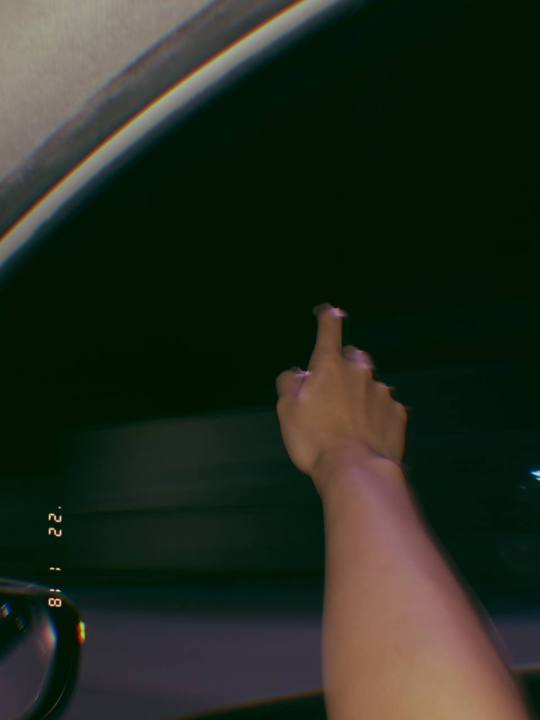
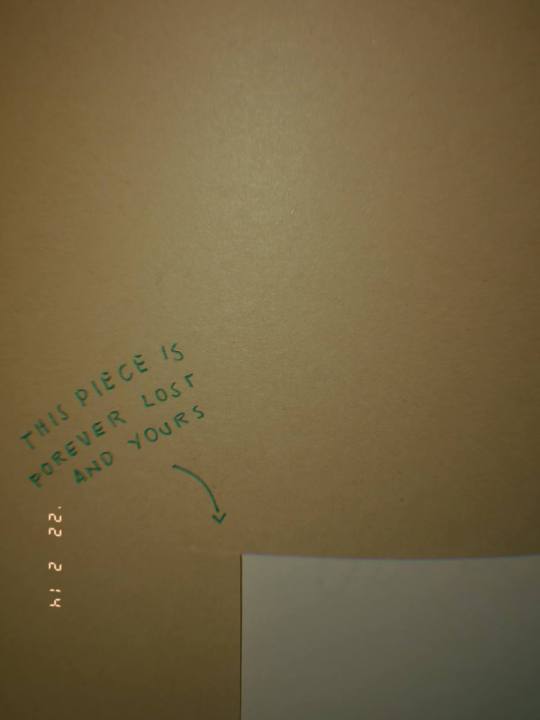

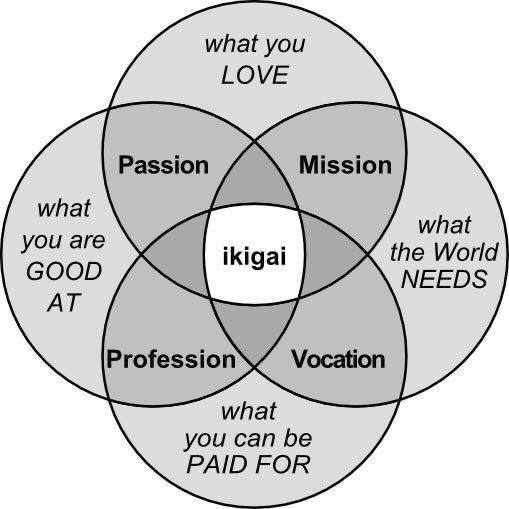
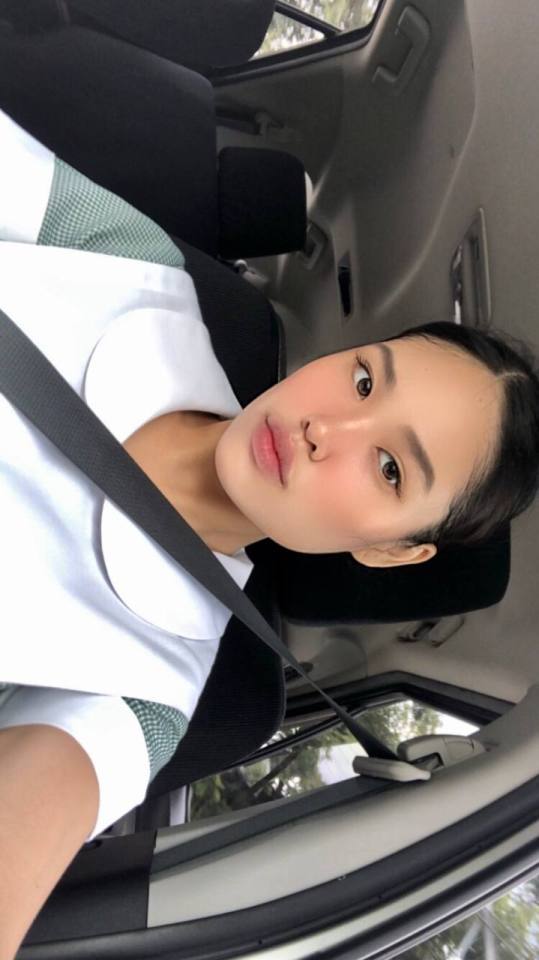
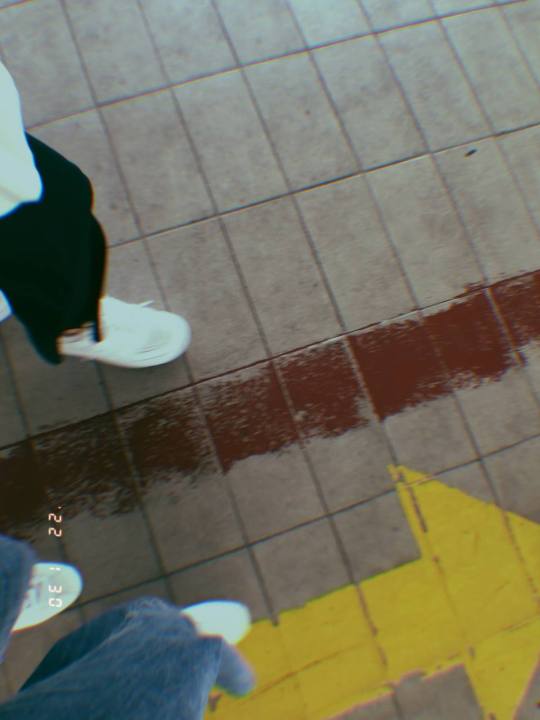
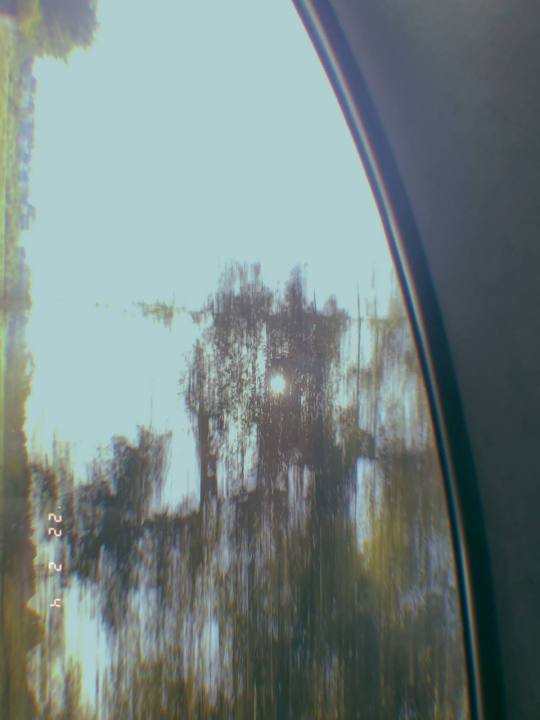
I have finally arrived.
This part of the blog talks about my self-reflection regarding my spiritual and political self.
1. What makes your life meaningful? And if you deem your life not meaningful, then what are the steps you can do to make it meaningful?
I once read a book entitled Ikigai: The Japanese Secret to a Long and Happy Life. Some of my favorite excerpts from the book go like this: “He who has a why to live for can bear with almost any how,” and “There is no future, no past. There is only the present.” Ikigai is the balance of passion, mission, profession, and vocation— all which contributes in giving one a meaningful life. Passion and mission are strengthened by doing what you love, mission and vocation pertains to honing yourself to become what the world needs; vocation and profession is the root of self-improvement which can be what you are paid for, and profession and passion enhances the parts of yourself that you’re really good at. These are identifiers; and once you have been enlightened to identify these parts of you, these will certainly give you a meaningful life.
My life changed after reading the book. I realized that life is meaningful when you just let it be. The families, friends, significant others, and society undeniably bring a huge impact in our lives; but we must remember that our world should not revolve around them. In order to attain a meaningful life, we must first find true meaning within ourselves. We must feel a sense of purpose by asking ourselves the questions: what’s one thing that my heart burns for? What must I accomplish in this lifetime to consider it a life well-lived? What is something I really want to be great at, and what is one thing that can help me survive this world? Once we have answers to these questions, we’ll begin to see life in a much different perspective.
If the teenage version of me would answer the question what does make my life meaningful, I’d probably say it’s the people I love. I’ll probably have a lengthy list of things and people that bring spark to my life— and I will most likely not include myself in that. However, as I grew up, I have come to realize that life is pointless when we don’t include ourselves in it. Life is like your favorite food that tastes bland when we put ourselves out of the picture. I realized that life really does begin outside the comfort zone, and that at some point, we have to move towards a new destination simply because we’re no longer the person who’ll stay in the previous one. The only one who can make our life meaningful is no other than our self— the way we view circumstances, the way we cherish moments, the way we spend time with people, the way we radiate and receive positive energy, the way we continue to love and learn ourselves deeper, the way we form real connections— all of these make life great. But like the wheels of a moving car, life doesn’t stay in the highs. The nights I spent crying my heart out, the last farewell from a lover, finding out your friends have always hated you, eating at the school bathroom, swallowing my pride because I can’t afford to lose a person, fighting my tears from falling because I can’t let them know I’m hurting, comforting other people even when I need it (just because I know they need it more than me), the piles of backlogs, feeling burned out, and being at the edge of giving up— all of these lows make life just as meaningful. Despite all of these, I chose to continue. Despite all the drawbacks, I chose to live— because life doesn’t end here; because there are a lot of people I am yet to meet, moments I am yet to experience, emotions I am yet to feel, places I am yet to see, and a lot of life I am yet to live. All the thick and thins and the victories and losses are bearable because I want to see more of life and more of me— and life: it’s always meaningful when you cherish the moment; when you live in it. As my philosophy in life goes: forgive the past, hope for the future; but always, always live in the now.
2. What are things in life you learned the hard way and how are you able to cope up with challenges, difficulties, and hardships that you encounter in your life?
I can say that I almost learned everything in a hard way. My parents were like the older generations, so I didn’t really get to experience a non-toxic household. I got used to suppressing myself and I grew up believing that love had to be toxic in order for it to be real. Some of the greatest challenges I encountered in life were financial and family problems, low self-esteem, lack of self-love and care, being taken for granted, physical abuse, sexual harassment, depression, and anxiety. I never knew it back then but almost all of these problems kept going on for a long time because I had no love left to offer myself. I used to be self-destructive as a way of coping with life difficulties. I engaged in different vices, splurged money on material things, broke all the rules I possibly can, and stayed with abusive lovers just to feel something.
As time passed by, I began to feel numb. I thought I can surpass it just like I usually do, but then it doesn’t go away for a long time. That’s when I felt like I needed to do something because this isn’t normal. However, instead of going back to old habits, I decided to make a reset and a restart. I disconnected myself from everyone else and started to focus more on me. I felt safe; secured in my own solitude, and that can get really scary in the long run. I started to push people away so I can safeguard my peace— but I also realized, that won’t really help because I’ll end up losing people I want to keep. So I spent more time with myself— I watched a lot of movies, read a lot of self-help books (because therapy isn’t normalized in our family), and I spent more time outside, reconnecting with nature. As time progressed, I really saw how much I’ve grown. I now place boundaries and not let people cross them, I leave places and people that no longer serve me, and I cut ties with people who make me feel that things are one-sided. I realized that when a woman finally learns how to love herself, everything becomes temporary. I have learned how to practice non-attachment and detachment, and I have learned how to protect my energy and peace.
Regardless, live has its own ways of finding balance. There will always be unprecedented circumstances that will disrupt the peace you currently have. If it was the old Arem, she would probably retaliate and act rebellious as per usual. The present Arem would absorb the situation, take a pause, feel the emotions, and continue with life. If it’s a heavier problem, of course it’ll take a longer time for me to get over it— but I always make it certain that I get over it. Time heals all wounds, at least for me. I do not (as much as possible) let the current situations cloud my judgment because when tomorrow comes, it’ll all be in the past; and I certainly do not desire to carry it in the future. Living in the present moment calms the heart and mind, and that power is something that no one can take away from you. When we learn how to let things go, we learn how to live freely. As one of my favorite excerpts from Ikigai goes:
“There will be a lot of adapting. There will be a lot of letting go. It is scary but necessary work to make, do, and make do in the service of becoming a version of yourself you can feel content living with. Release the baggage, your scars will be reminder enough of the lessons learned in the process.”
3. How can becoming a better Filipino influence your duty to become a better version of yourself?
Filipinos have a lot of qualities and values that can help one to become a better person. However, due to the teachings of the older generations, some people still live up with the traditions even if they can no longer be applied to the modern world. Some examples of these are being homophobic, shaming people for engaging in premarital sex, raising a child alone (without a husband or wife), not marrying a man/woman you have a child with, wearing clothes that show skin, dwelling in the mindset of “ano na lang sasabihin nang iba?”, degrading people for not having a college degree, gender violence, stereotypes, and a whole lot more. Filipinos have grown to be more criticizing and judgmental over the past few years, and living in the country has become so toxic because people are going to have something to say with your every move. As Filipinos, we must understand that teachings from the older generations are no longer applicable in the modern world, as the contemporary times aim to achieve greater equalities for everyone. People have been speaking up against gender violence and they have started to advocate for breaking stereotypes in order to make people realize that everyone is capable of doing everything, regardless of their gender. It’s time for us, Filipinos, to open our eyes and realize that we are no longer living in the past— we are ending the boomer mindset with us, so that the future generations won’t have to experience the same ones we did. Becoming a better Filipino would also mean being non-judgmental; accepting people for who they are, focusing on ourselves rather than the businesses of others, disengaging with the cancel culture, seeing everyone as our equal, and standing up for what is right. The betterment of the country and ourselves go hand-in-hand, because in order to become better Filipinos, we must be better versions of ourselves first; and when we strive to become a better version of ourselves, we become better citizens of the country.
4. How can your profession be of help to the development of yourself and the country?
The nursing profession always aims to provide quality care towards their clients and every day is dedicated for saving lives. Since we will be dealing with different clients each day, the first few things that the course taught us were to “remain a non-judgmental manner, establish rapport, understand the client, and respect their traditions, beliefs, and culture.” In order to achieve these goals during the initial nurse-patient interaction (NPI), we must treat our patients as our equal, make them feel comfortable or at ease so they can freely express their concerns, remain an empathetic attitude so we can further know about the situation they’re going through, and we must keep in mind that these clients are unique individuals with different set of views. All of the criteria needed for a successful NPI are qualities that I, unfortunately have. I am impatient; I suck at communicating with people, and my resting-sungit-face gives off an unapproachable vibe to the client. Still and all, I had to practice on facial expressions, body language, and communication skills in order to achieve these goals— not because I need to, but because I want to become a good nurse in the future. I want my clients to confide in me; I want them to feel that they’re not going through tough circumstances alone and I want to foster the best quality of care I can possibly give.
I can proudly say that I have become a better version of myself as I write this, compared to how I used to handle my home patients (online return demonstrations) before. The nursing profession makes me strive to become a better person so I can give my clients the better treatment that they deserve. Furthermore, I want to be seen not just a nurse but a role model who cares for her fellow Filipinos without judgment and selectivity, and hope that I can influence them to become better people as well. I hope that attitude that I give out to those people who surround me— may it be at home, at school, or at the hospital— will radiate the same attitude towards me, just like the world’s famous golden rule goes. If not, I hope that my kindness extends to them and will eventually make them realize that the world can use a little more kindness these days. It’s free, and it comes back to you on a bigger scale. Still and all, everything comes from progress, no matter how small. Great things will always take time, simply because life is preparing you for when it finally comes. As a line I bookmarked from Ikigai goes: “Walk slowly and you’ll go far.”
Life is a never ending process; a never ending journey. There will be a lot of highs and a lot of lows; smooth roads and rough ones. Roads crowded with people and roads less travelled. Stop looking for a destination and just let it be— the loveliest destination you’ll arrive to is yourself. You just have to look within to see the greatness it holds.
*attached pictures are connected to the answers.
0 notes




